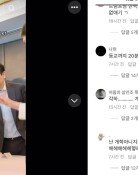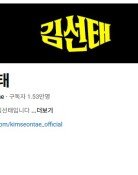Parting Sections and Stimulating Social Unrest Must Be Restrained
Parting Sections and Stimulating Social Unrest Must Be Restrained
Posted March. 14, 2004 22:38,
As the impeachment initiative hit hard in Korea for the first time in Korean history, the society has fallen into turmoil and public opinion has been clearly divided.
Even some blocks of society have shown intentions to use this crisis as a chance to raise their political interests by instigating national anxiety, and social conflicts and disorder.
Under such circumstances, reporters in the Dong-A Ilbo have asked presidents of major universitiesintellectuals of Koreato suggest their evaluations and measures to deal with it. The reporting team interviewed about 20 presidents of universities throughout the country, but some of them declined to offer any opinions over the impeachment crisis, citing it is not the proper time to say something.
However, 12 university presidents willingly accepted our questioning and stated, It is very important to accept various opinions in all walks of life in our society, especially when the country is suffering from such disorder; and it is also our duty, as scholars, to provide sincere advice for the future direction of both society and the National Assembly.
Mostly, they have concluded that if we manage this chaotic situation in a rational way, we can surely overcome it. Also, there is no reason people should be that anxious about it, and must restrain any action that may instigate national unrest. It is time to have a calm mind, rather than a fiery heart, and draw on rationality, rather than emotion, they said.
They also called for politicians, who sparked the current dismal situation, to reflect themselves and make an all-out effort to view it as a new opportunity to develop national consensus.
Lets face this with rationality. Seoul National University (SNU) president Chung Un-chan said, It is understandable that people seriously worry about it since it is an unprecedented experience, however, there is no reason to feel that way because the law system and administration procedures are firmly well established. Korea University president Euh Yoon-dae said, A nation should keep a unflappable attitude and be cautious not to be involved in any emotional appealing.
Myongji University president Sonu Jung-ho asserted, We are neither under war nor coup. Even though the president stepped down from his position, the prime minister and his cabinet are faithful to their duties. Thus, there is no reason to regard now as a crisis. However, SNU president Chung expressed concern over the economy by saying, Uncertainty can lead to economic investment shrinking. Thus, the government should establish new principles in operating the economy and, in doing so, help investors gain more confidence in future investments.
They came to the conclusion that since it is a crisis we can overcome, any action to instigate social unrest should be restrained. It is important to wait for the decision of the Constitutional Court. Of course, it is possible that each individual states their opinions, but it might exacerbate the current situation, if people weigh only their positions with extreme stress, Myongji University president Sonu said.
Besides, concern over illegal violent demonstrations was mentioned. University of Seoul president Lee Sang-beom expressed his worry by saying, Ways of expressing opinions must be lawful. If one block stresses their positions through violent, unlawful ways, an opposition block will take counter actions in similar ways. Accordingly, the social rest will be more seriously attacked. Kyungpook University president Kim Dal-wung pointed out, Emotional appeals should be prevented to block violent situations. In addition, Gwangju University president Kim Hyeok-jong emphasized, Violent demonstrations should be prohibited because they might tarnish our national image.
Overcoming conflicts, the nation should go ahead for national consensus. The division of public opinion will be the most serious problem. Many presidents sincerely worried about this point. In particular, Sogang University president Ryu Jang-son and Pukyong National University president Kang Nam-chu expressed their concerns over possible development that the political conflicts between the opposition and ruling parties can be transformed into the division of public opinion.
Yonsei University acting president Kim Jung-ki worried, It is a big problem that the division in political sectors, such as your side and my side, occurs among common people in Korean society. If such a pattern keeps continuing, it is highly unlikely to expect a decent decision based on rationality or norms.
The solution can be achieved only through sincere efforts to take part in discussion without any bias on each part, which is the same conclusion of university presidents. Namely, citizens in Korea should make an attempt to iron out the problems with rational discussion without excluding others who hold different opinions.
Kookmin University president Kim Moon-hwan said, This case is the best example that if people ignore each other, there is nothing to gain. Thus, it is very important to accept each other and make an effort to go together. Seoul Womens University president Lee Kwang-ja stated, We should make an effort to understand each other by adopting various measures such as TV discussion.
Konkuk University president Chung Kil-seng said, There is no one who can take a lead in overcoming such a crisis in political sectors. Therefore, a national council consisting of seniors in social sectors should be established to state our opinions to politicians and to call for national support from our people.







